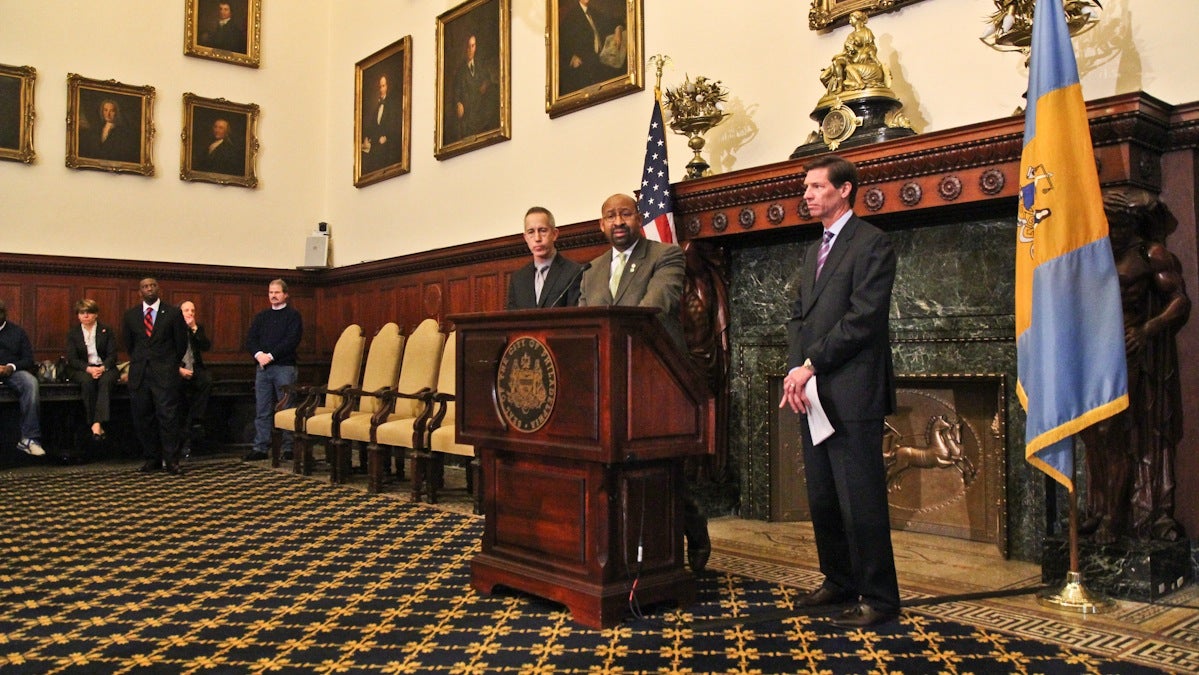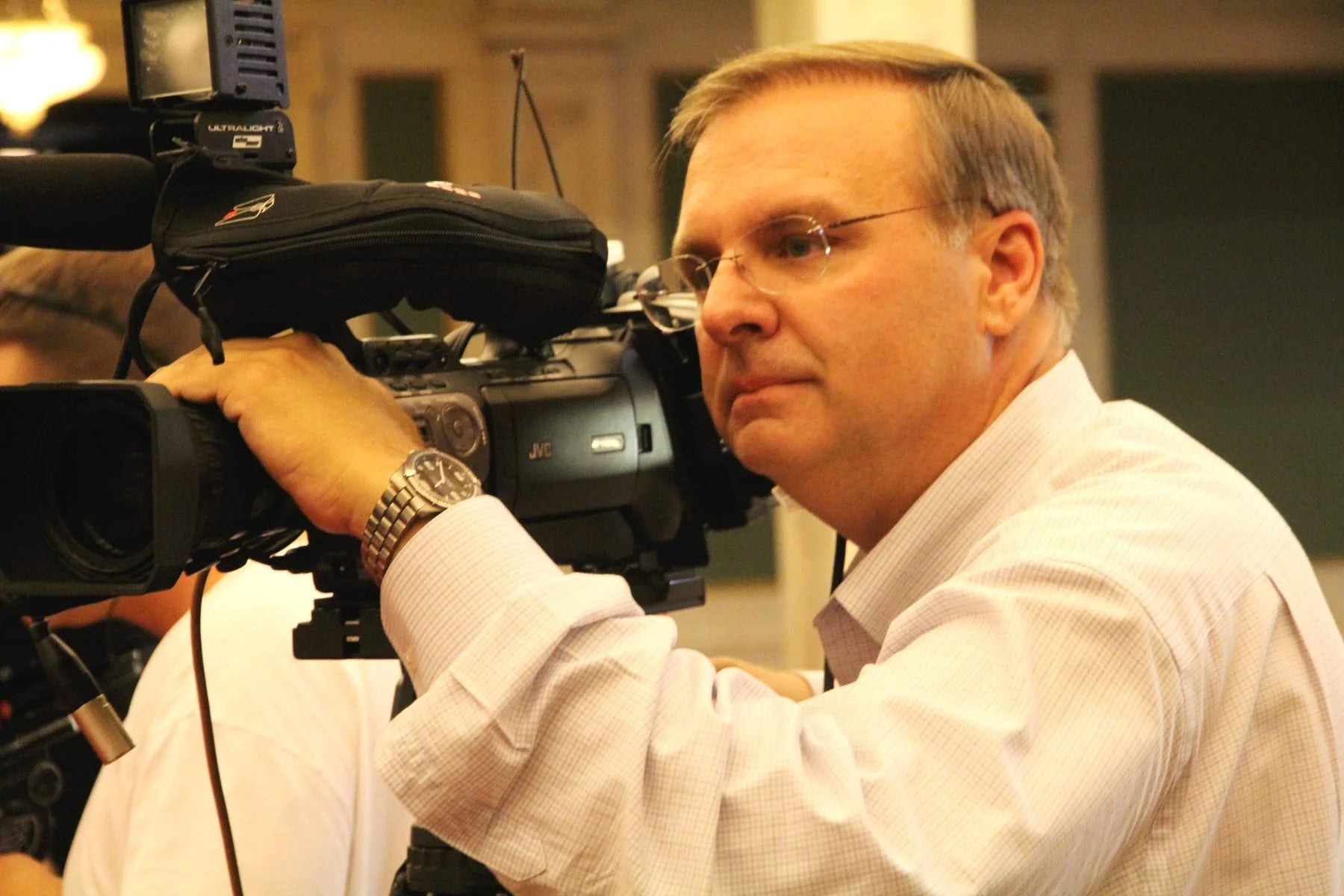Philadelphia announces winning bidder for PGW
Listen
Philadelphia Mayor Michael Nutter is shown Monday at City Hall announcing that UIL Holdings Corp. of New Haven, Conn., plans to purchase Philadelphia Gas Works. (Kimberly Paynter/WHYY)
Philadelphia Gas Works is being sold to a New Haven, Conn., energy company. The deal is worth $1.86 billion.
“There was a time when city ownership of a gas company made sense. I believe that time has now long passed,” said Mayor Michael Nutter, in announcing the deal with UIL. Nutter said Philadelphia has owned its gas company, PGW, for 176 years. If the deal goes through, it won’t soon, and Nutter says everyone will benefit.
“We are now perfectly positioned to join our peer cities that all have privately owned gas companies in their locales and with UIL as our partner we can realize a great potential that lies ahead for our residents, our businesses and our public employees at PGW,” he said.
The sale price is $1.86 billion, but the city is expected to net between $400 million and $600 million in profits after paying down PGW’s obligations. That money will be used to shore up Philadelphia’s chronically underfinanced pension fund.
Under the deal, gas rates will not rise for three years and all PGW employees will be kept at least that long, said Jim Torgerson of UIL Holding.
“UIL has a proven track record of community involvement and plans to be a strong corporate citizen in Philadelphia,” Torgerson said. “We are committed to diversity and we will continue to support minority- and women-owned businesses, and we will also intend to maintain the currently offered programs to customers requiring additional support.”
Questions on discount program
That means keeping discounts for seniors and the low-income families, he said.
But advocates for the poor fear the deal could jeopardize the discounts — if not immediately, then eventually.
Robert Ballenger, an energy attorney at Community Legal Services, said he is especially concerned about a part of the sale agreement stating that UIL will make “commercially reasonable efforts” to include those discounts in its initial gas rates.
“That certainly doesn’t mean those programs are protected for the foreseeable future,” he said. “It also suggests that, at some point, the buyer may not find it commercially reasonable to continue to advocate for those programs for current low-income customers.”
Nutter said discount programs for the poor and senior citizens are protected by city law and the state’s Public Utility Commission.
“There’s never been a moment either of those vital programs or any of those vital programs were ever a topic of discussion,” he said, “other than, ‘Yes, they’ll be be maintained.'”
Union, environmental concerns
The deal has its critics, including unionized PGW employees who are concerned about what will happen after their three-year guarantees are up. And environmentalists are concerned that a PGW liquified natural gas facility in Port Richmond would be turned into an LNG export facility.
Phil Rinaldi, CEO of Philadelphia Energy Solutions, said that probably won’t happen. PES, a collaboration of the Carlyle Group and Sunoco, has been running the former Sunoco refineries in South Philadelphia.
“I think there are some kind of practical restrictions that are not going to make those world-scale kind of plants happen here,” Rinaldi said of large-scale LNG terminals for exporting gas across the ocean. “LNG, on the other hand, has a bright future here in Philadelphia. LNG for regional use for sure to fuel things like trains like ships like fleet vehicles.”
City Council will have hearings on the deal and plans to hire its own consultant to review the sale. City Council and the Pennsylvania Public Utility Commission must approve the agreement.
Holly Otterbein contributed to this report.
WHYY is your source for fact-based, in-depth journalism and information. As a nonprofit organization, we rely on financial support from readers like you. Please give today.





